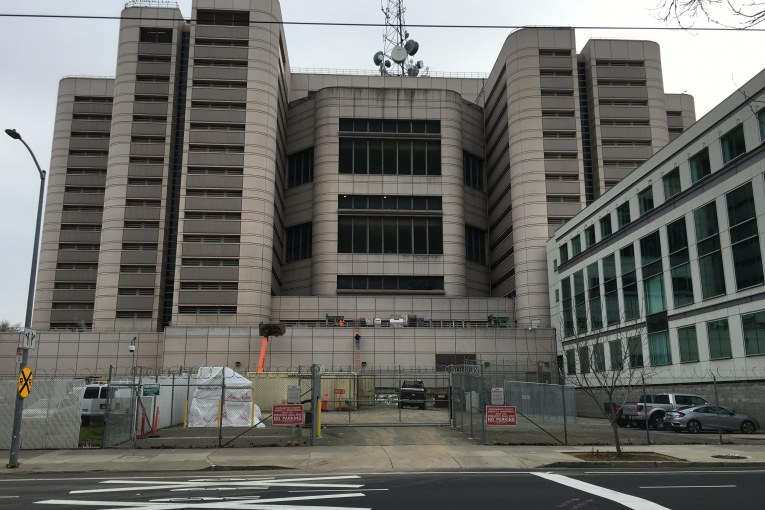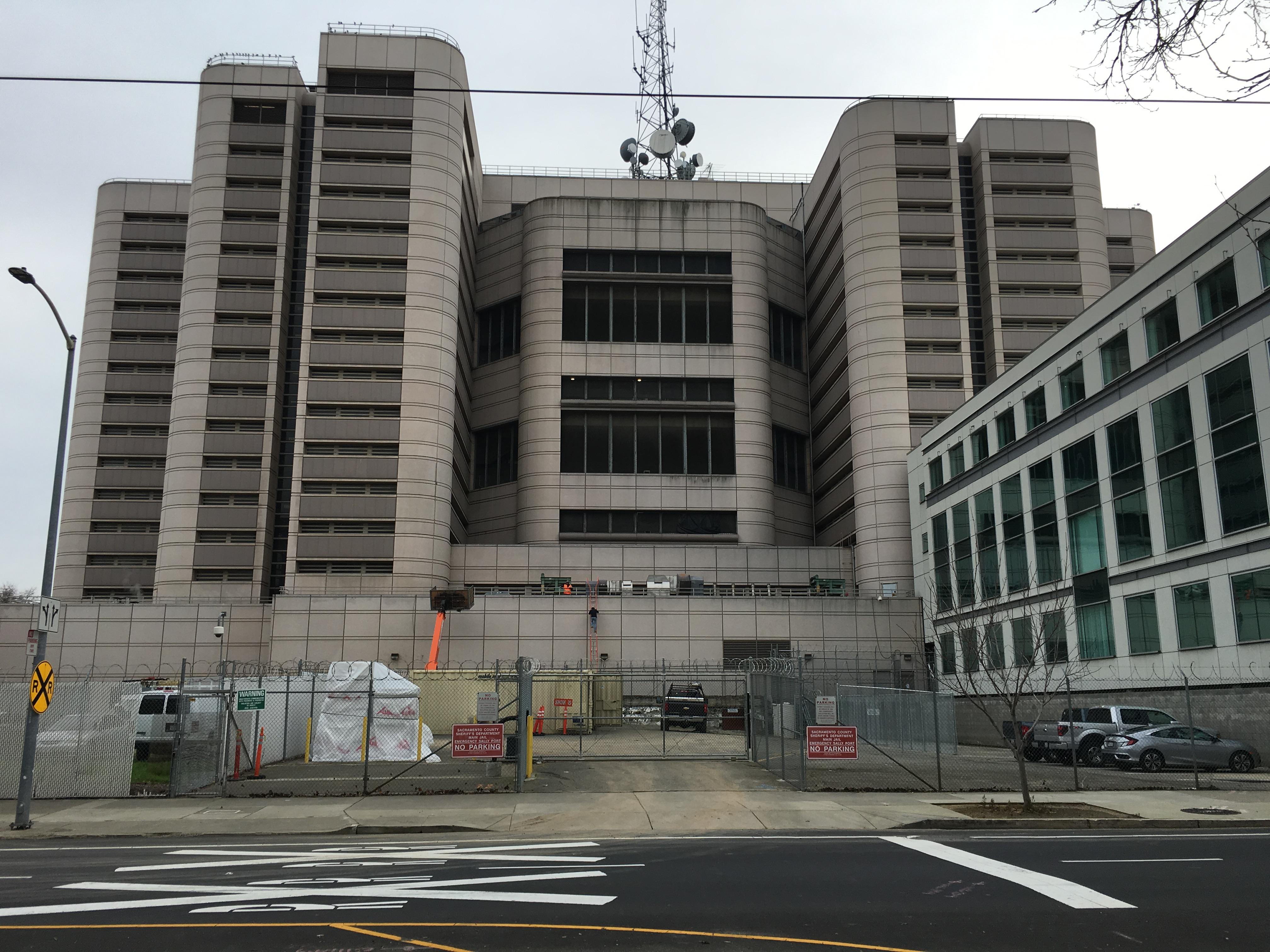
 By Shwetha Krishnakumar and Emma Phillips
By Shwetha Krishnakumar and Emma Phillips
SACRAMENTO – Domestic violence cases nearly doubled in Sacramento County from February to August of this year, with COVID-19 stay-at-home orders to blame. Domestic violence cases were excluded from $0 bail, therefore revenue from bail bond is essentially keeping the bond industry alive, often forcing victim-survivors of violence to post bail for their abusers. While the statewide $0 bail order ended in June, Sacramento County’s courts kept the terms in place indefinitely. The emergency order caused a significant decline in bail bonds, and relies heavily on revenue from exempt violent crimes – such as domestic violence – crimes for which racial minorities are disproportionately jailed.
Defendants jailed usually post a bond to get released from jail by working with a bail bond company that has agreements with the court. As part of the agreement, a nominal percent, typically 10 percent of the bond is paid to the bail bond industry for the person’s release.
The person is released, and the percentage is nonrefundable even if the case is dismissed, or the charges reduced. Essentially, the bail bond industry profits off what an individual is able to pay to avoid jail, an especially dangerous place during COVID-19 before guilt or innocence is proven.
This bond is collected from defendants’ friends, families, or partners – in cases of domestic violence, this often means the survivors of violence.
Naturally, those who are unable to meet higher costs – largely poorer Black and Brown people – feel a greater financial burden, which disproportionally affects communities of color.
Many point to the case of Kalief Browder, a 16-year-old who committed suicide after spending two years in solitary confinement because his family could not afford the $900 for a bail bondsman.
Some have lost jobs, housing, and custody of children while they remain in custody for seemingly trivial crimes. Others have pleaded guilty for the simple fact that they did not want to endlessly sit in jail while awaiting trial.
The $0 bail ordinance, which was instituted across California earlier this year in attempt to empty the jails and discourage COVID-19 from ravaging jails, extended only to minor non-violent crimes, and as such, excluded domestic violence cases.
Despite the emergency order, records indicate that the bond industry in Sacramento County made $87.4 million in the five months after the order, a higher figure than from the same period in 2019.
Given the findings of recent studies of increasing occurrences of domestic violence against cohabiting partners during the coronavirus pandemic, money collected from bail bonds for these violent cases remain one of the largest source of revenue for the bail bond industry.
In fact, according to a report by the Sacramento Bee, “bond agents themselves said domestic violence cases helped backfill their ledgers.”
This report finds that since April, approximately 42 percent of all people who posted a bail bond to be released from jail faced at least one domestic violence charge. Additionally, it was found that bail bond was posted in at least 569 such incidents – by accused offenders, and occasionally by the very survivors of violence.
Representatives from the bond industry Topo Padilla (President, Golden State Bail Agents Association) and Elena Norlie (Manager, Sacramento Bail Bonds) have noted the rise bonds posted for domestic violence cases, the latter stating that the number of domestic violence bonds they processed increased up to 30 percent, despite seeing a fall of almost 50 percent in all other bond cases processed by their office.
As an industry whose survival is dependent on collecting bail bonds from violent offenders, the American Bail Coalition has raised $6.5 million in funds to campaign against Prop. 25 on the California ballot, which would replace cash bail systems across California with a risk assessment system.
The bond industry argues that Prop 25 would result in the release of violent criminals back onto the streets, a view supported by the Yolo County DA’s office, which has called the proposed law a “get out of jail free card” ( Assistant Chief Deputy DA), and recently reported on the rise of cases of violent recidivism in the county.
Civil liberties and racial justice groups support the abolishment of cash bails because people of color are oftentimes disproportionately negatively impacted.
Many supporters of Prop 25 have also voiced their support for the continuance of $0 pandemic bail, noting that ending the order would “disproportionally devastate communities of color” (SF Public Defender Mano Raju) and that ending the order would be akin to giving permission to revert to the “mass pretrial incarceration of Black and Brown people” (Alameda County Chief Public Defender Brendon Woods).
However, domestic violence cases makes this a contentious and complicated arena for racial minorities; research has found that survivors of domestic violence often bear a large amount of bond bails; and the Women of Color Network observed in 2006 that African American women experienced 35 percent more reported cases of domestic violence against them than white women.
Therefore, people of color are not only more likely to face domestic violence, they are also more likely to face a significant bond burden for a non-exempt violent crime, while being in poorer financial positions.
Heather Harris of the nonpartisan Public Policy Institute of California, found that because of the varying factors occurring simultaneously – pandemic related shelter-in-place orders, economic uncertainty, and civil unrest – a reliable analysis of the effect of cashless bail is a large task.
Notably, the American Civil Liberties Union remains neutral on Prop 25 and the abolishment of cash bail.
The bail bond industry, which also opposed the California $0 bail emergency order, admitted that it would continue to “[do] their jobs” even if it means pulling money out of “mostly minority and low-income communities” (Sacramento County Chief Probation Officer Lee Seale).
Money bail seems to perpetuate an endless cycle of domestic violence, the bail bonds industry profiting, and financial hardship, as Allison Kephart claims such cases are complicated by abusers using financial hardships as “leverage over their partners”(WEAVE’s director of legal services).
Indeed, according to Dr. Caroline Bradbury-Jones and Dr. Louise Isham, local governments should take action to protect and support survivors by providing crisis and therapeutic support, including “refuge accommodation, independent advocacy and peer support and mentoring services” and such support should involve instituting $0 bail in a situation where the financial burden ends up being borne by the victim-survivor of the crime.
The indiscriminate enforcement of bail bonds in cases of violent crimes such as domestic violence disproportionately burdens minority survivors of abuse, perpetuates the survivor’s trauma, and drives the systemic marginalization of Black and Brown people, critics charge.
They add that a deeper and more critical examination of the judicial enforcement of bail collection is required; particularly to determine the role of a profit-driven bonds industry in the criminal justice system which benefits off repeating cycles of violence against minorities.
To sign up for our new newsletter – Everyday Injustice – https://tinyurl.com/yyultcf9
Support our work – to become a sustaining at $5 – $10- $25 per month hit the link:





